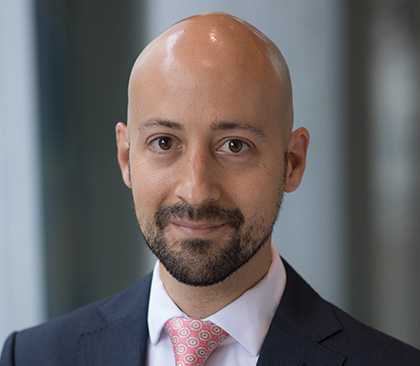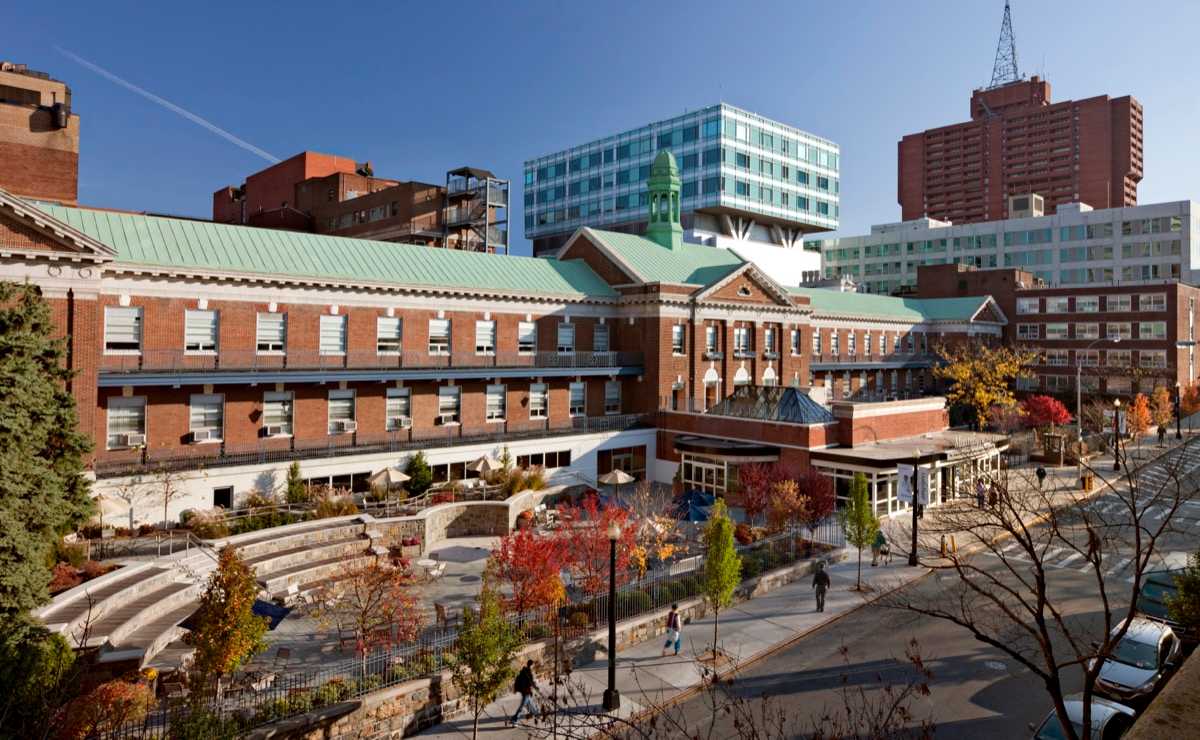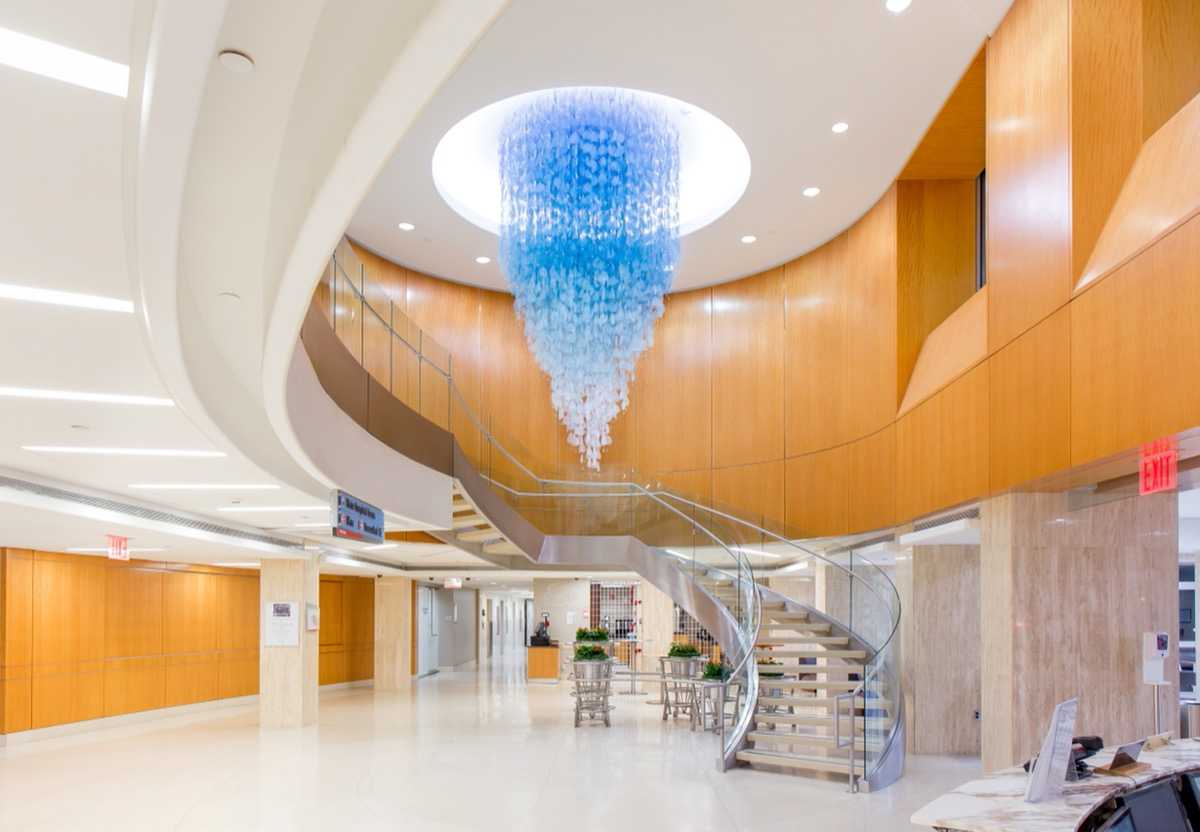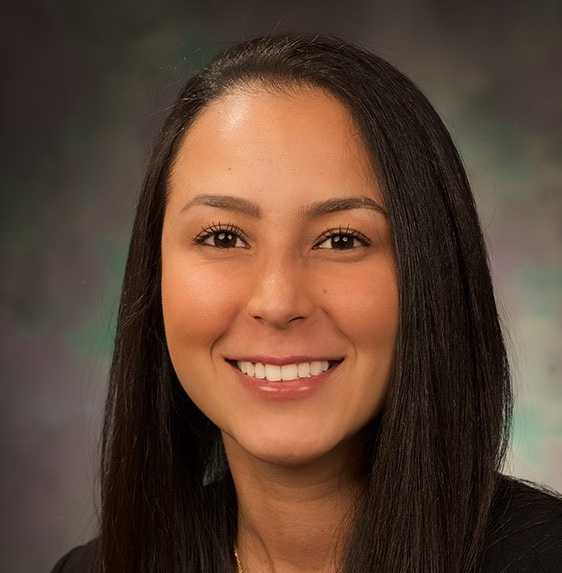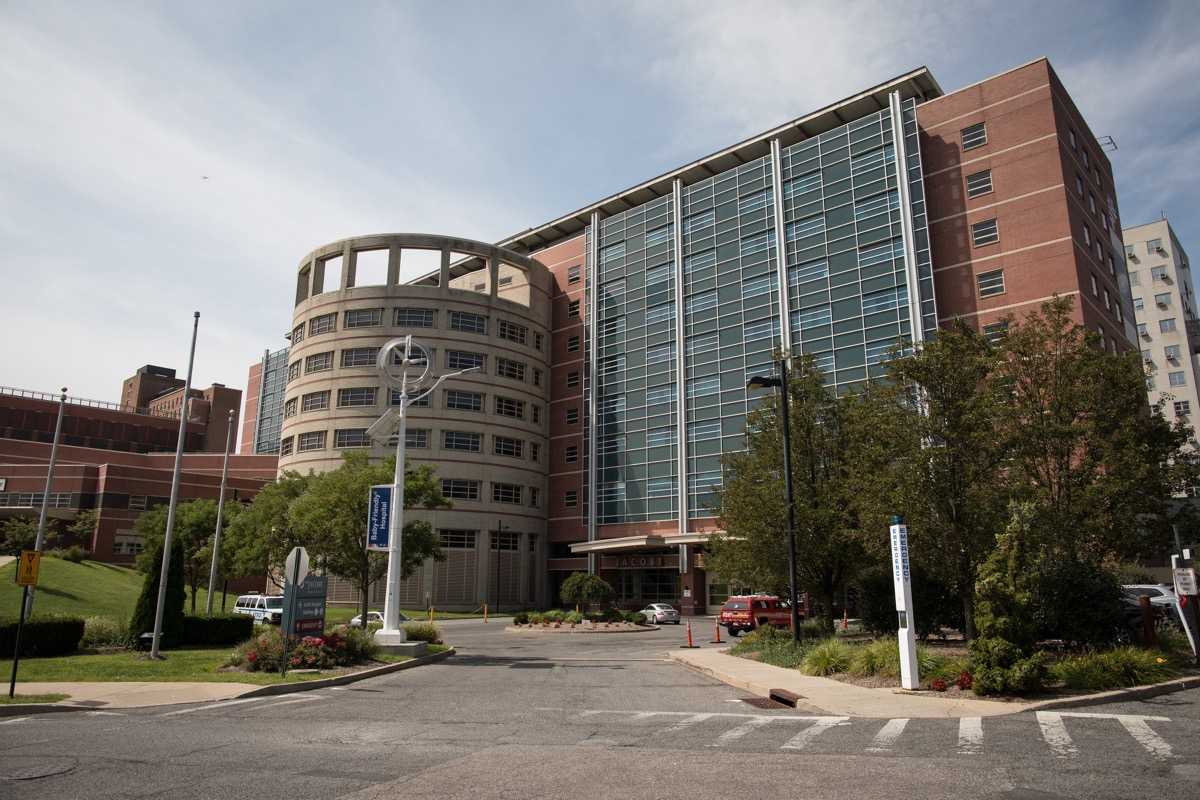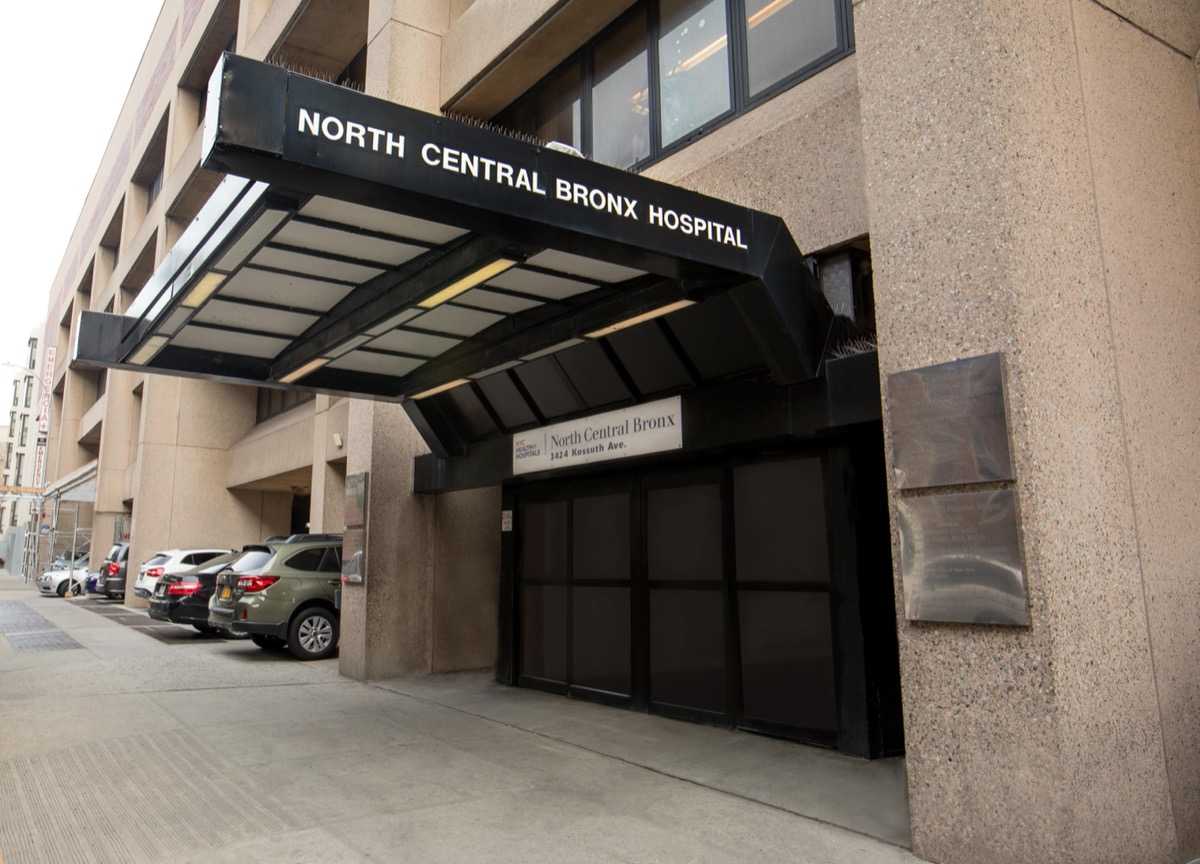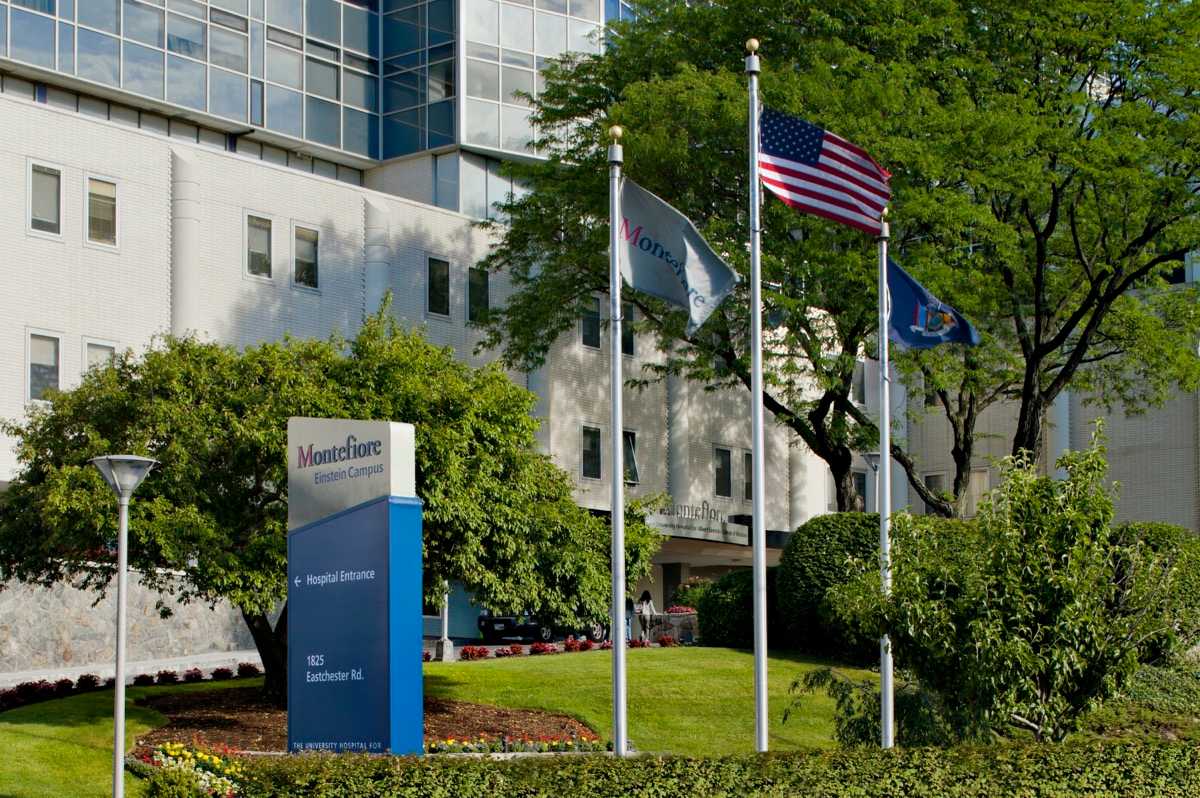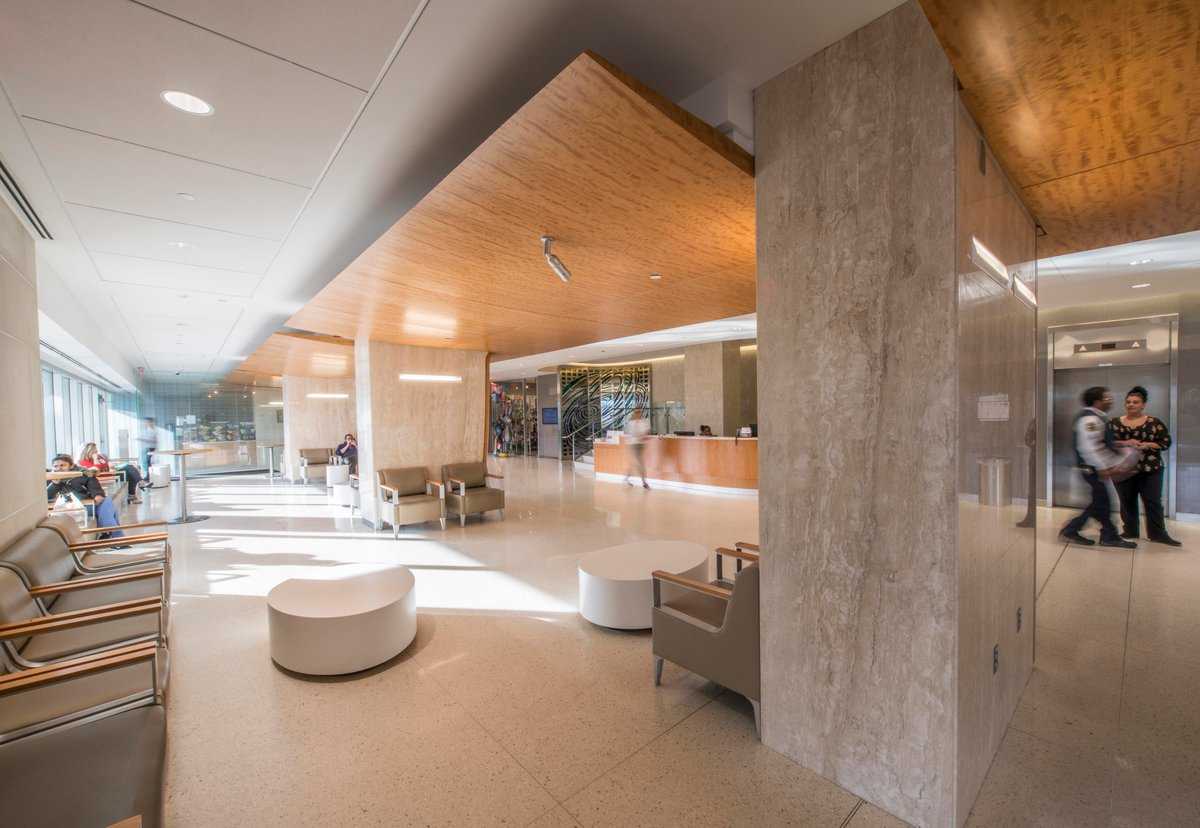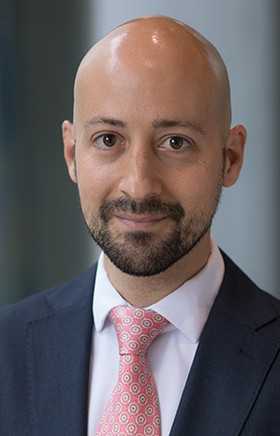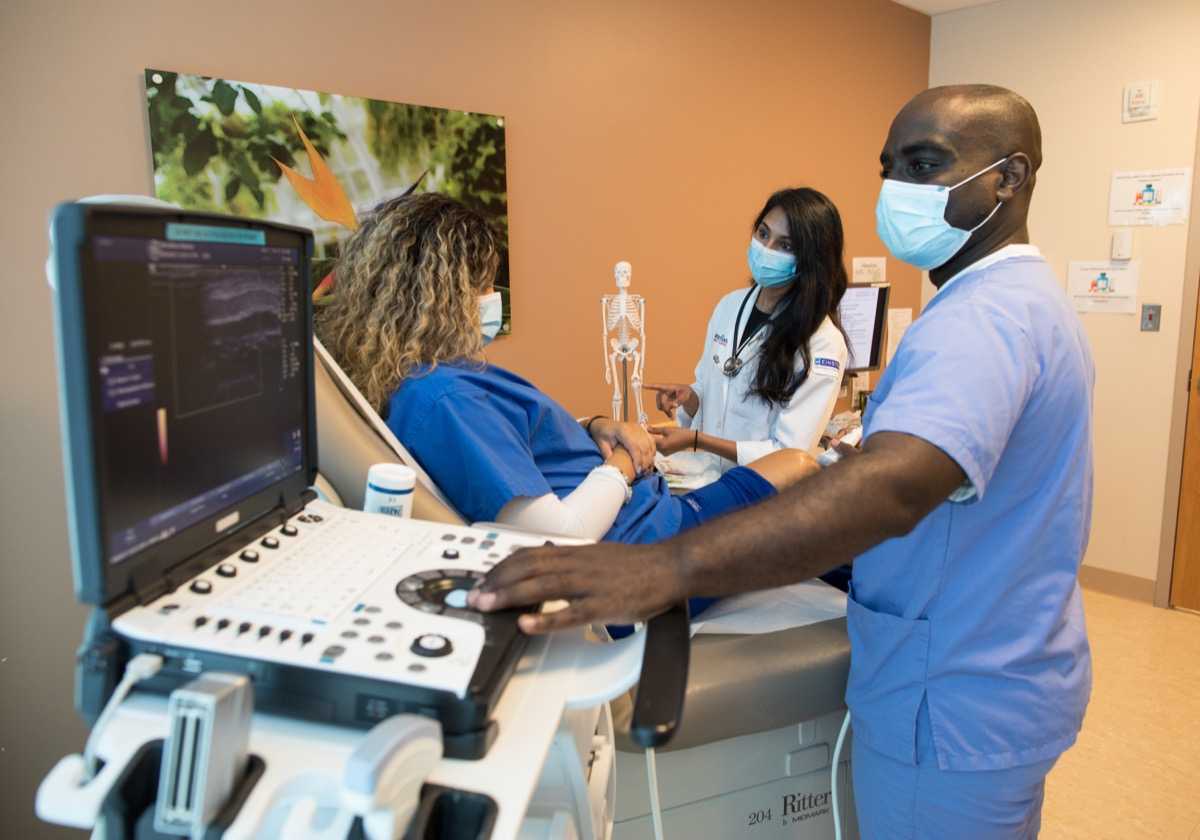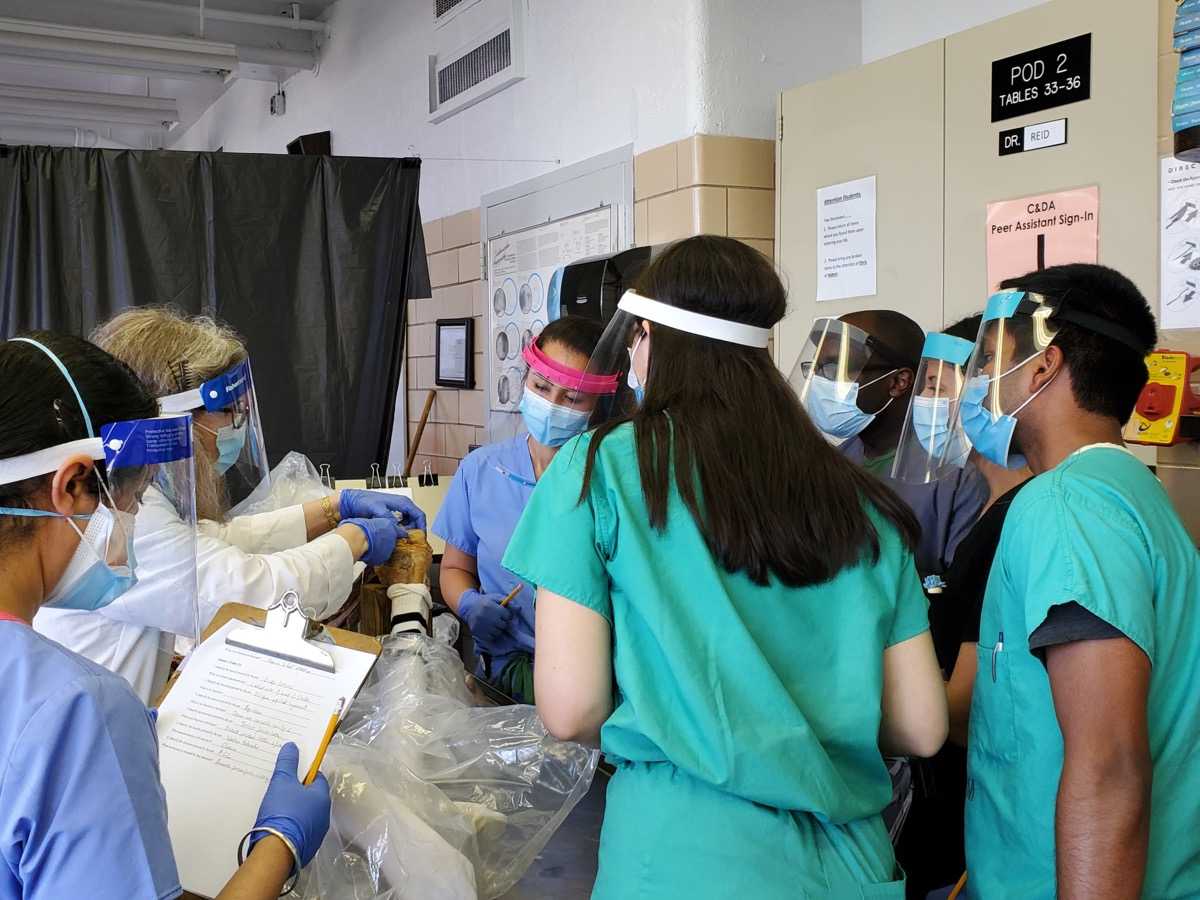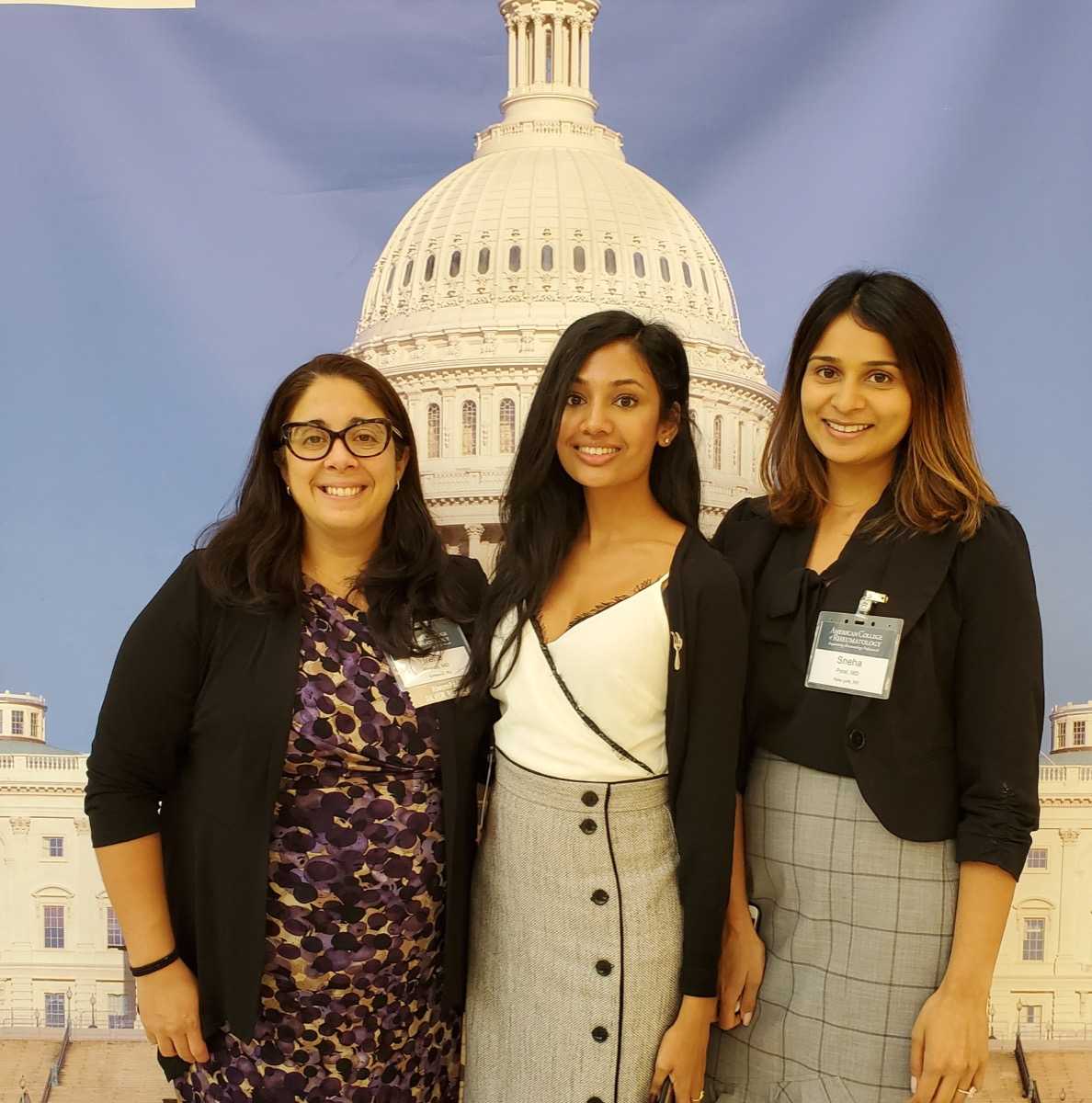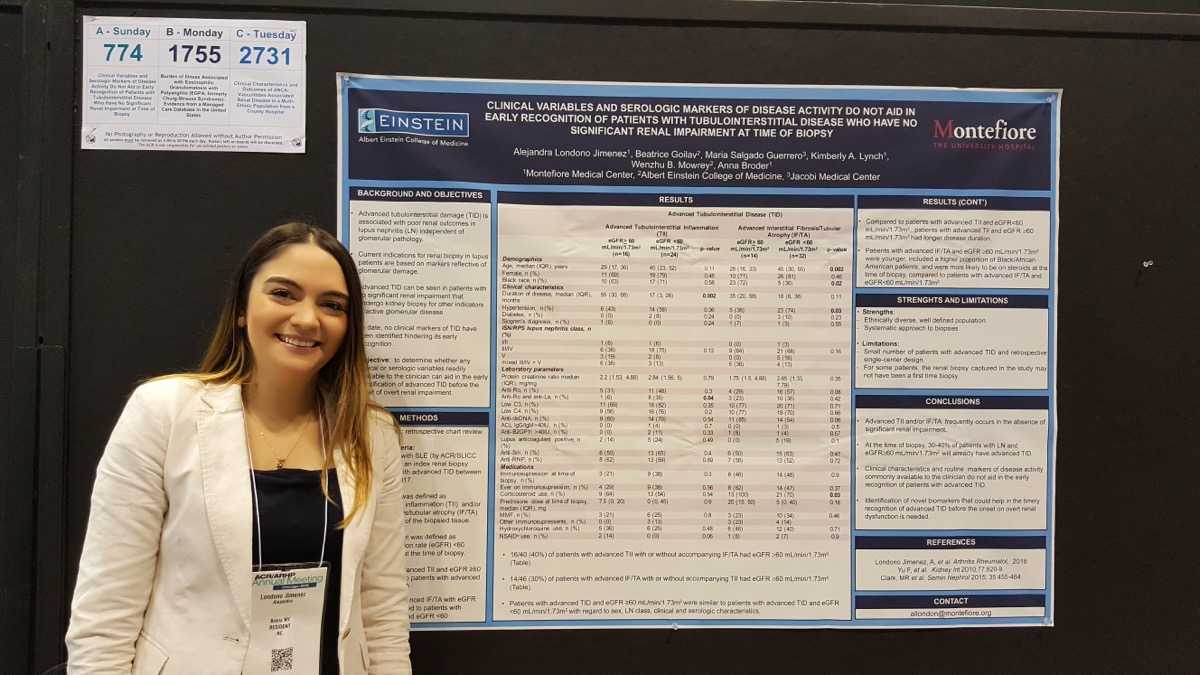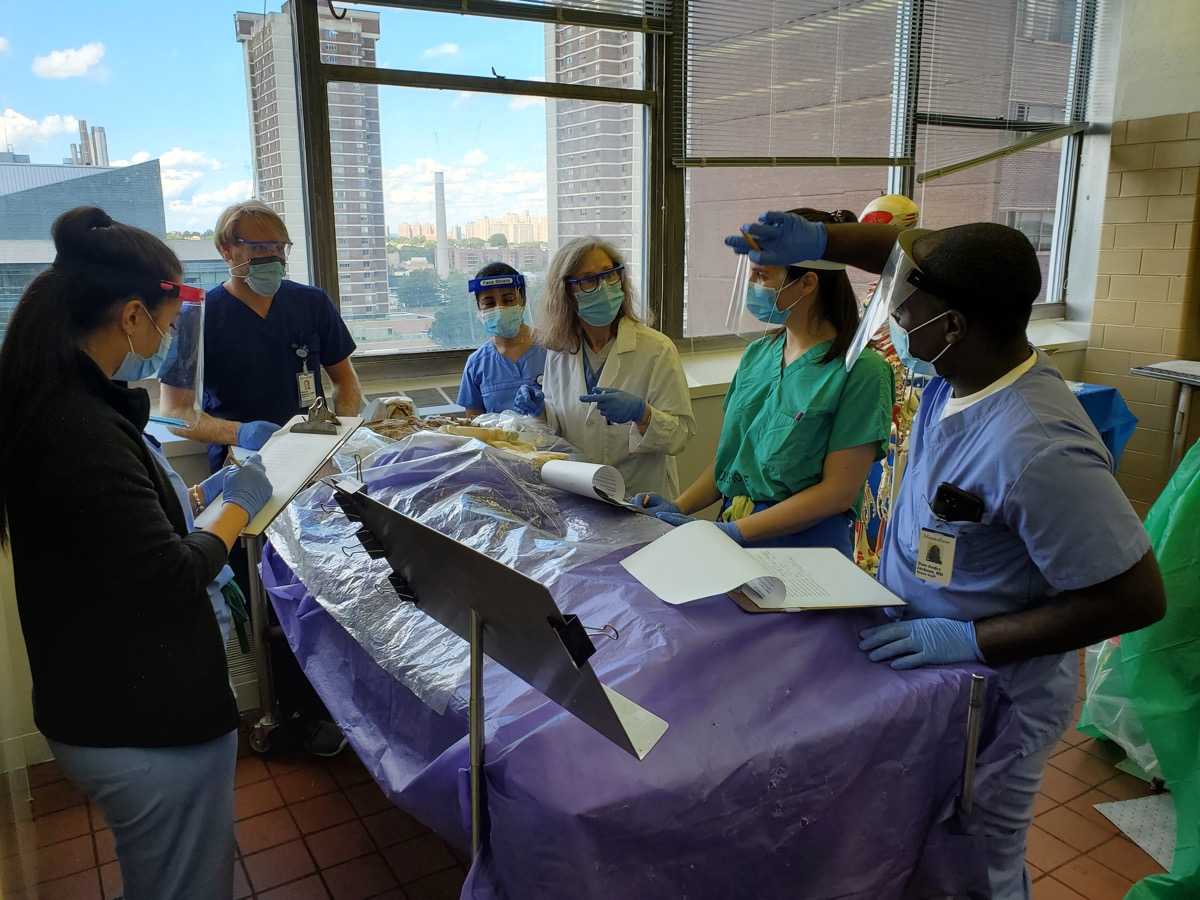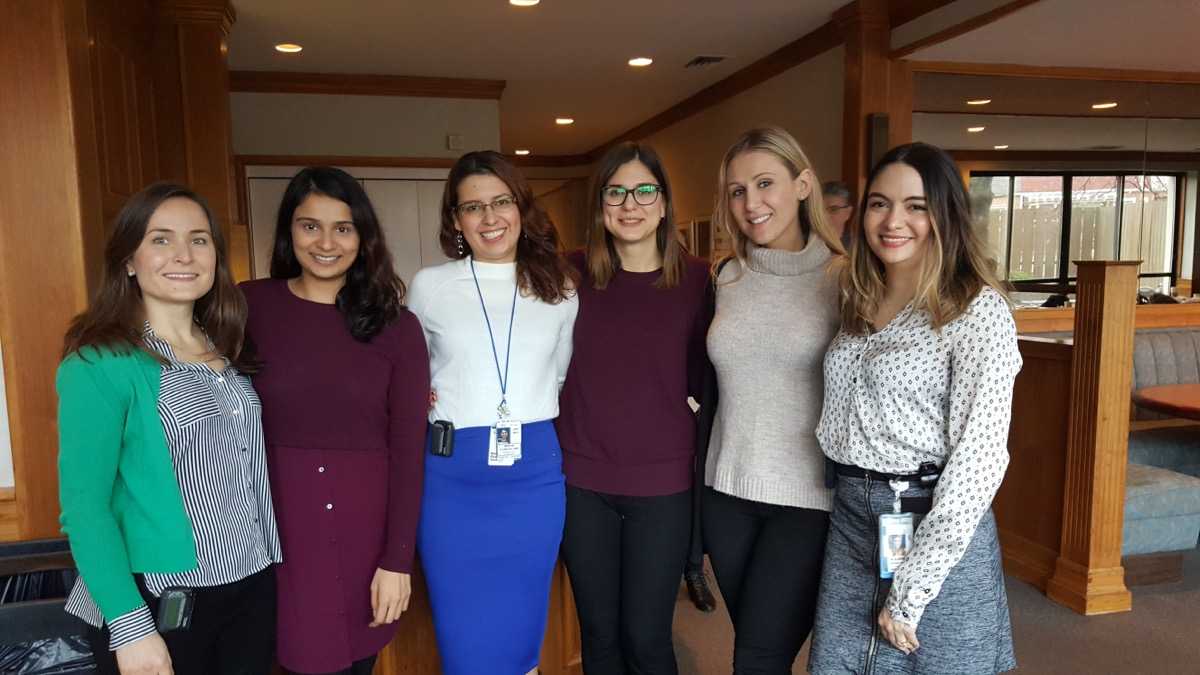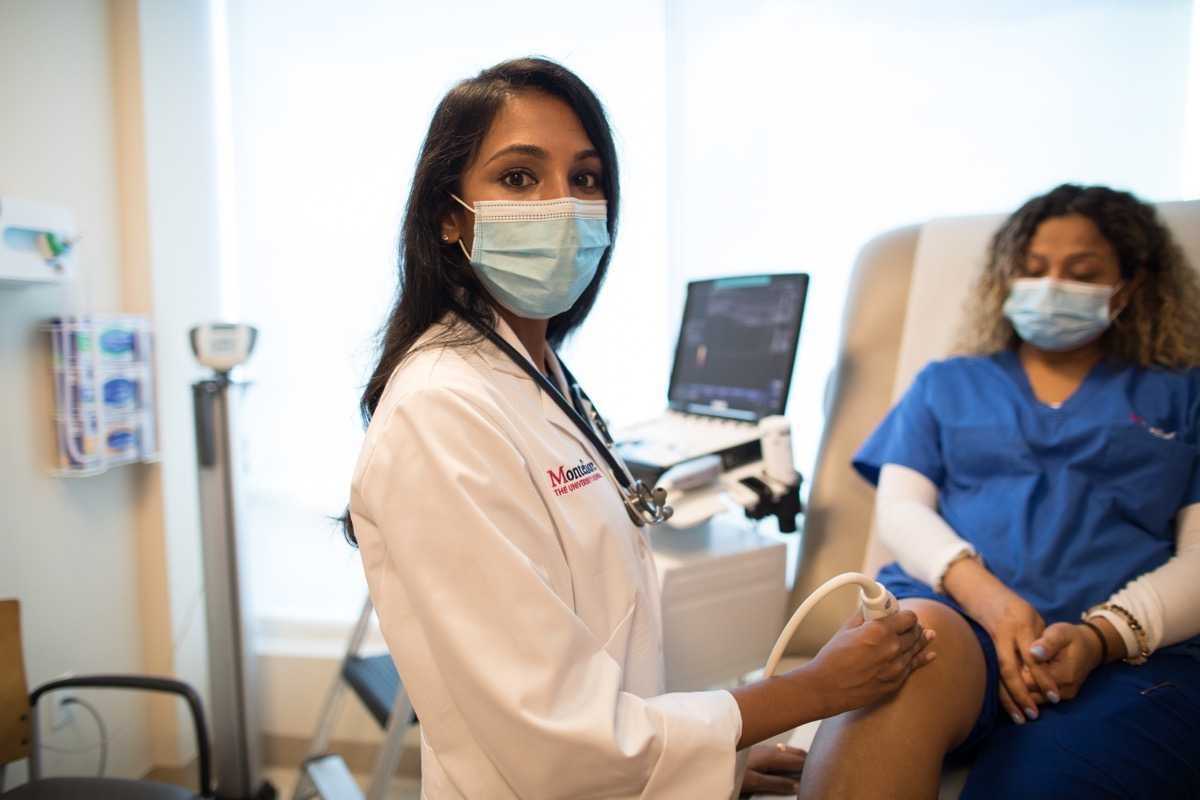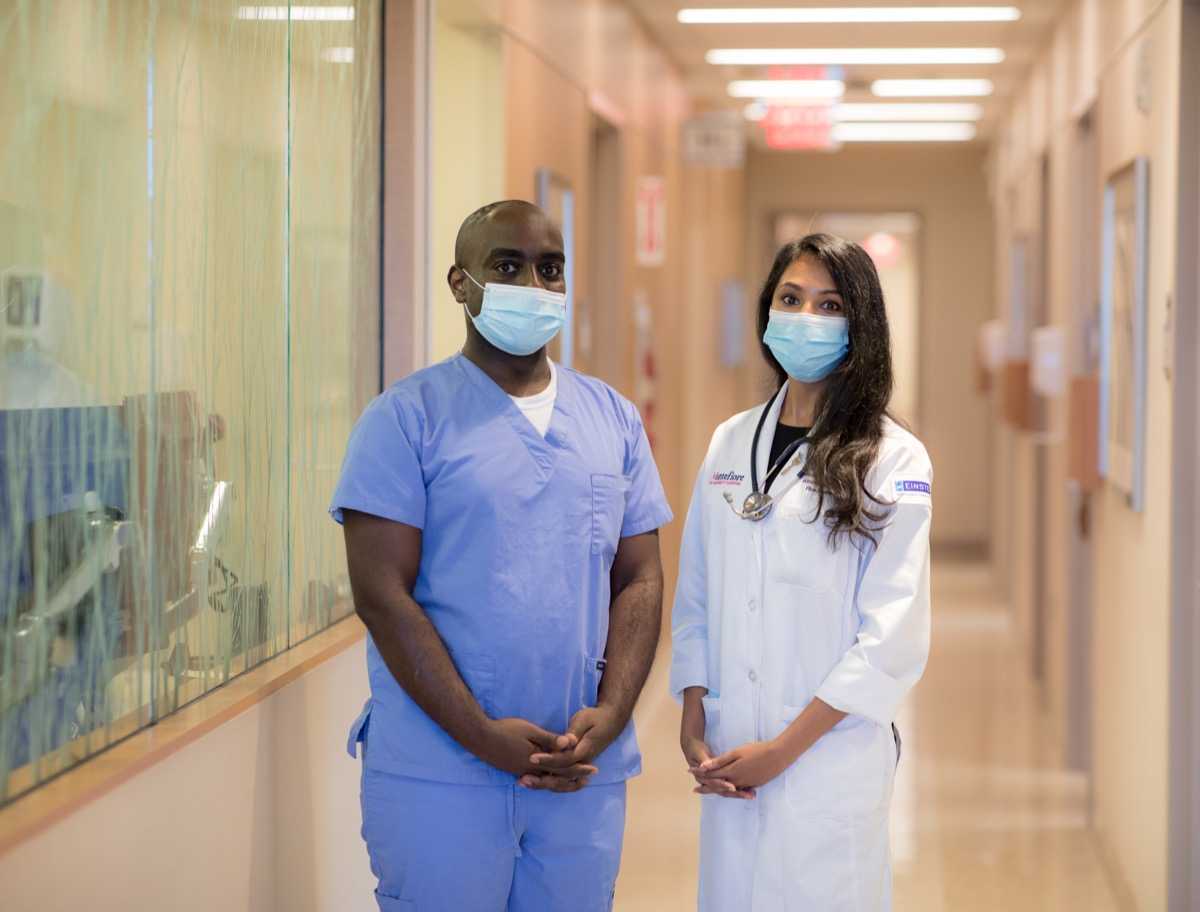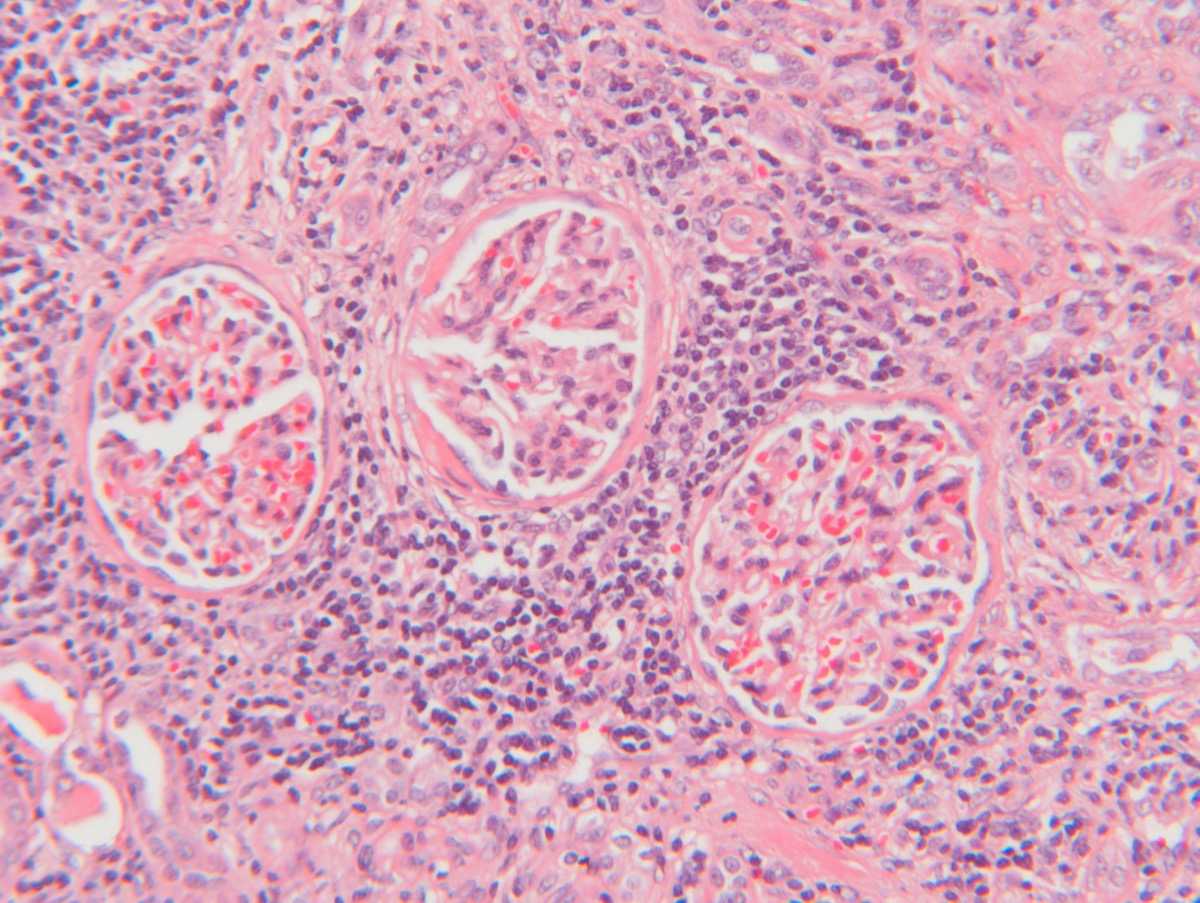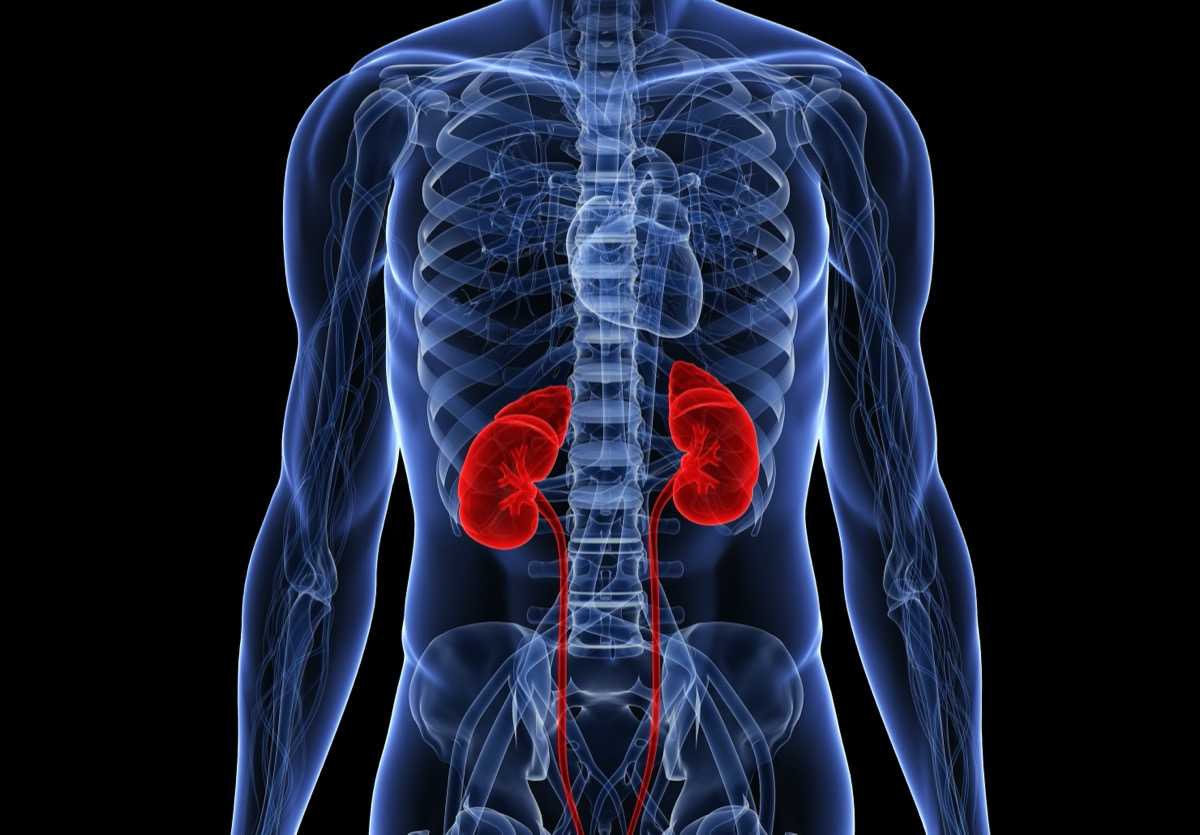Department of Medicine
Rheumatology Fellowship Program
Our two-year program, with an option for extending to three, educates our fellows in providing comprehensive, multidisciplinary and state-of-the-art rheumatologic care, with an emphasis placed on being patient-centered.
Konstantinos Loupasakis, MD, Director, Rheumatology Fellowship Program
Why our program could be right for you
The Montefiore Einstein Rheumatology Fellowship Program combines a didactic curriculum and unparalleled clinical exposure to a diverse patient population with a spectrum of rheumatic diseases, allowing our trainees to sharpen their skills and become well-rounded rheumatologists. By participating in continuity clinics, our fellows come to understand the long-term manifestations and complications of the rheumatic diseases while developing lasting clinical partnerships with their patients.
A goal-oriented fellowship
Over the course of their training, fellows learn how to:
- Demonstrate and apply advanced knowledge of clinical manifestations, presentations, pathophysiology and management of rheumatologic diseases, as well as of systemic diseases with rheumatologic manifestations
- Develop and demonstrate the clinical skills of data collection, including history taking, physical examination (including the performance of an in-depth musculoskeletal exam) and demonstrating appropriate request for and interpretation of laboratory testing and analysis of imaging studies
- Perform and/or interpret diagnostic tests and therapeutic procedures while ensuring patient safety and comfort, including arthrocentesis, common in the practice of rheumatology
- Display excellent clinical assessment and judgment in determining the use, efficacy and side effects of immunosuppressive and immunomodulating therapies
- Exemplify values consistent with patient-centered care while addressing the social determinants of health in order to provide optimal care for all patient populations
- Advocate for the needs of patients affected by the rheumatic diseases on a local, regional and national level
Moses Campus
A 726-bed tertiary care hospital, our Moses Campus offers state-of-the-art care, ranging from comprehensive cancer care to advanced transplant services. Moses is also home to our lupus and general rheumatology clinics, where fellows provide ongoing patient care at their weekly continuity clinics. Through the breadth of specialties and services provided at Moses, our fellows gain incredible exposure to the most complicated rheumatology cases. All rheumatology admissions and consultations are seen and followed by two Rheumatology Fellows and one faculty member assigned to the Moses Campus for the month.
If you train at Einstein, you can go anywhere from here. The diversity of patients and pathology is unparalleled. We take care of one another at Montefiore Einstein Rheumatology, and we really like each other!
Dima Nimri, MD
Second-year Rheumatology Fellow
Jacobi Medical Center
A Montefiore Einstein teaching affiliate, Jacobi Medical Center (JMC) is home to a Level 4 trauma center, a burn center, an active emergency room and 457 acute care beds. Our Division of Rheumatology provides consultative services for patients hospitalized at Jacobi or referred by the emergency room. Given the incredibly diverse surrounding population, fellows will see a wide breadth of rheumatology at this site. While at JMC, fellows will also attend the lupus, general rheumatology and musculoskeletal (MSK) ultrasound clinics as part of their continuity experience in outpatient care. All rheumatology admissions and consultations are seen and followed by a Rheumatology Fellow and faculty member assigned to the JMC for the month.
I chose this program for the strong clinical education and diverse urban environment. I stayed as faculty because of the brilliant and inspirational rheumatologists I met there, who genuinely care for your success as well as for the patients.
Shereen Mahmood, MD
Director, Montefiore Einstein Musculoskeletal Ultrasound Clinic
North Central Bronx Hospital
Owned and operated by the New York City Health and Hospitals Corporation, North Central Bronx Hospital (NCBH) is located next to our Montefiore Einstein Moses Campus. This 232-bed facility features approximately 90 medicine beds, an ICU and stepdown unit, a surgical unit, pediatric service and a busy OB/GYN service. Rheumatology Fellows rotating on our Moses Campus are responsible for inpatient consultations at NCBH and for covering the NCBH emergency room. Inpatient consults are seen and followed by a Rheumatology Fellow and an attending from the Moses service or a Jacobi Medical Center faculty member rotating at NCBH.
Jack D. Weiler Hospital, Einstein Campus
Located on the campus of Albert Einstein College of Medicine, the Jack D. Weiler Hospital is a 403-bed tertiary care facility that serves 75,000 patients per year.
Program clinics
A number of specialized clinics offer our trainees the opportunity for hands-on, in-depth learning.
A world-renowned faculty
Current fellows
Faculty and scientists at the forefront of research
Fellowship Application Information
We’re seeking fellows who will shape the future of healthcare.
If you would like to apply to become a Rheumatology Fellow at Montefiore Einstein, here is some information to keep in mind.
- Applications will be accepted through ERAS on a rolling basis until September 30, 2021.
- We recommend that your application and letters of recommendation be available for download by the program as close to August 13, 2021, as possible.
Have questions? Get in touch.
Mildred Rodriguez
Coordinator, Rheumatology Fellowship Program
mirodrig@montefiore.org

